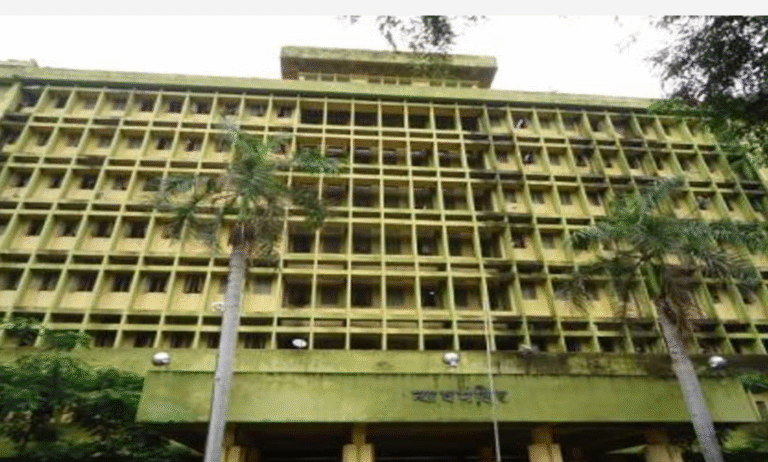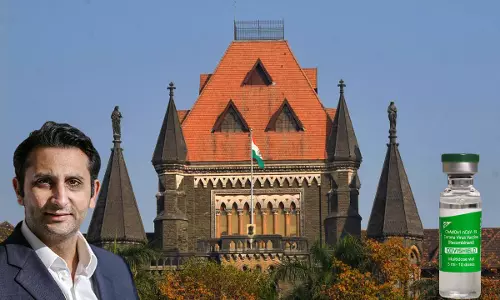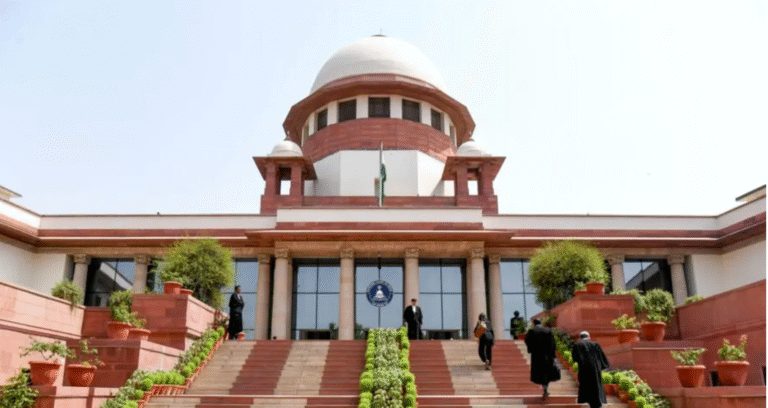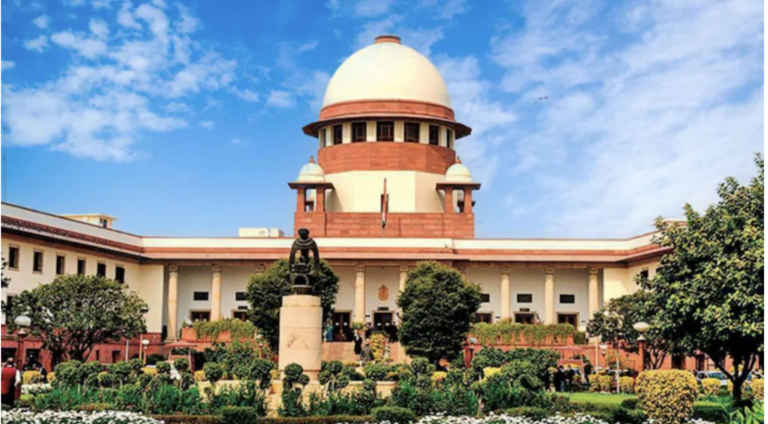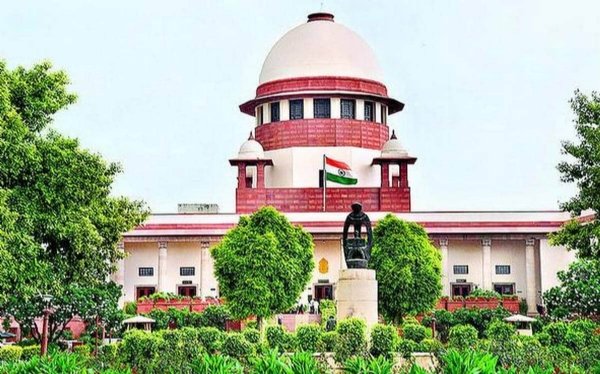Complaint Seeks FIR, CID Probe, Disciplinary Action & Contempt Proceedings Against Nagpur Sessions Judge for Illegal ‘No Coercive Steps and No Arrest’ Order in favor of accused 409 IPC

Case without hearing the Public prosecutor and Police and in deliberate violation of the guidelines of Supreme Court and Bombay High Court.
Mumbai Sessions Judge Qazi Caught in ₹15 Lakh Bribery Scandal for passing judicial orders — ACB Traps Judge’s Agent (Court Staff) Red-Handed; Judge Absconding.
Bombay High Court dismissed two Sessions Judges for the charges of corruption and gross misconduct.
In the landmark judgment K. Rama Reddy v. State, 1998 (3) ALD 305, the High Court has categorically held that— if a conspiracy is hatched to secure bail for an accused, then all persons involved in that conspiracy—including the Sessions Judge, the Public Prosecutor, and the defence advocates—must be prosecuted by registering criminal offences against them.
In a recent matter, in the case of Roop Singh Parihar v. State, 2025 SCC OnLine MP 7184, the High Court has taken a strict view against Sessions Judges who granted bail to accused persons charged with grave offences under Section 409 IPC—punishable with life imprisonment—by passing illegal orders. The High Court has directed immediate action against
Mumbai/Nagpur, November 2025: A major judicial controversy has erupted after a detailed complaint was lodged before the Chief Justice of the Bombay High Court, alleging grave misconduct and “prima facie corruption” by Shri Jaywant C. Yadav, In-charge District Judge-19 & Additional Sessions Judge, Nagpur.
The complaint seeks registration of FIR, CID investigation, criminal contempt proceedings, and withdrawal of all judicial work from the Judge for allegedly extending an illegal ‘no coercive steps / no arrest’ protection to an accused public servant on the very first day of filing, and without hearing the Public Prosecutor or the Investigating Officer.
The complaint has been filed by renowned Human Rights Activist and Chairman of the Supreme Court and High Court Litigants’ Association, Shri Rashid Khan Pathan.
Several Bar Associations across Maharashtra and other States have extended strong support to this complaint, stating that:
“Such corrupt judicial conduct maligns the reputation of the judiciary, erodes public faith, inflicts severe hardship upon junior and honest advocates, and poses a direct and grave threat to the rule of law. It is the victims, law-abiding citizens, and upright members of the legal profession who ultimately suffer the consequences of this corruption, as their fight for justice becomes longer, harsher, and increasingly uncertain.
Meanwhile, emboldened by such systemic failures, criminals gain confidence, lawlessness begins to thrive, and society experiences a dangerous form of moral and social pollution when offenders freely roam without accountability.”
Bar leaders have further emphasised that unless strict action is taken against judicial officers who misuse their authority to protect accused persons in corruption cases, the integrity of the entire justice system will remain under threat.
Sessions Judge Has No Jurisdiction to Pass ‘No Arrest / No Coercive Steps’ Order
The complaint emphasizes that a Sessions Court has absolutely no jurisdiction to pass any order restraining arrest or directing “no coercive steps” in an anticipatory bail application. The only permissible direction under Section 438 Cr.P.C. is:
“In the event of arrest, the accused shall be released on bail.”
Any order beyond this statutory mandate is void, without jurisdiction, and illegal, especially in a case involving Section 409 IPC, a serious offence punishable with life imprisonment.
Supreme Court & Bombay High Court Conditions Ignored
The complaint notes that the Supreme Court and Bombay High Court have laid down stringent conditions before anticipatory bail can be considered in offences under Sections 406, 409, 420, 120-B IPC, particularly when the accused is a public servant:
· The Court must first record a finding that no prima facie case under Section 409 is made out.
· Custodial interrogation may be essential.
· Anticipatory bail cannot be granted mechanically or in routine.
· The gravity of the offence and role of the accused must be examined in detail.
However, the complaint alleges that none of these mandatory requirements were followed. Instead, the Judge granted sweeping protection to the accused at the threshold, without reasons and without hearing the State.
Accused Public Servant Booked Under Section 409 IPC
The beneficiary of the impugned order, District RTO Officer Vijay Chavan, is an accused in a serious case under Section 409 IPC—criminal breach of trust by a public servant—a charge that carries punishment up to life imprisonment.
The complaint states that granting such extraordinary protection in a grave economic offence, without jurisdiction, and without hearing the prosecution, raises serious suspicion of corrupt motive, judicial abuse of authority, and interference with investigation.
The legal provisions and binding precedents of the Supreme Court and the Bombay High Court make it unequivocally clear that when a Judge acts in violation of statutory mandates or deliberately disregards binding judicial precedents to extend illegal benefit to an accused, such conduct attracts criminal liability. In such cases, the Judge becomes liable for prosecution and punishment under Sections 166, 218, 219, 409 and other relevant provisions of the IPC, Section 7-A of the Prevention of Corruption Act, 1988, as well as Sections 2(b), 12 and 16 of the Contempt of Courts Act, 1971. In several such cases, judges who indulged in similar misconduct—acting contrary to statutory provisions and binding precedents to favour accused persons—have been suspended, removed from judicial service, and even dismissed from their posts after disciplinary and criminal proceedings.
In this case, a request has been made to array as co-accused not only Vijay Chavan, the principal accused, but also his advocates who secured such an illegal order, as well as all other individuals who participated in the conspiracy.
In the landmark judgment K. Rama Reddy v. State, 1998 (3) ALD 305, the High Court has categorically held that— if a conspiracy is hatched to secure bail for an accused, then all persons involved in that conspiracy—including the Sessions Judge, the Public Prosecutor, and the defence advocates—must be prosecuted by registering criminal offences against them.
In that case, the Court had issued direct orders initiating criminal proceedings against all the persons involved.
Similarly, in a recent matter, the High Court has taken a strict view against Sessions Judges who granted bail to accused persons charged with grave offences under Section 409 IPC—punishable with life imprisonment—by passing illegal and jurisdiction-exceeding orders. The High Court has directed immediate action against such judicial officers.
In Roop Singh Parihar v. State, 2025 SCC OnLine MP 7184 , the High Court found that a Sessions Judge misused judicial power to “aid and assist the accused” in securing bail in a serious offence under Section 409 IPC, which carries punishment up to life imprisonment.
The High Court held:
“A copy of this order be sent to the Principal Registrar (Vigilance)… seeking permission for conducting an inquiry and for taking disciplinary action against the Ist Additional Sessions Judge… who had discharged the applicant from offences under Sections 409, 420, 467, 468, 471, 120-B and 107 IPC without considering the facts, and to give undue advantage to the applicant to get benefit of bail… It appears that the Judge had an ulterior motive in holding charge under Section 406 IPC only, so as to give undue advantage by which the applicant could avail benefit of bail.”
